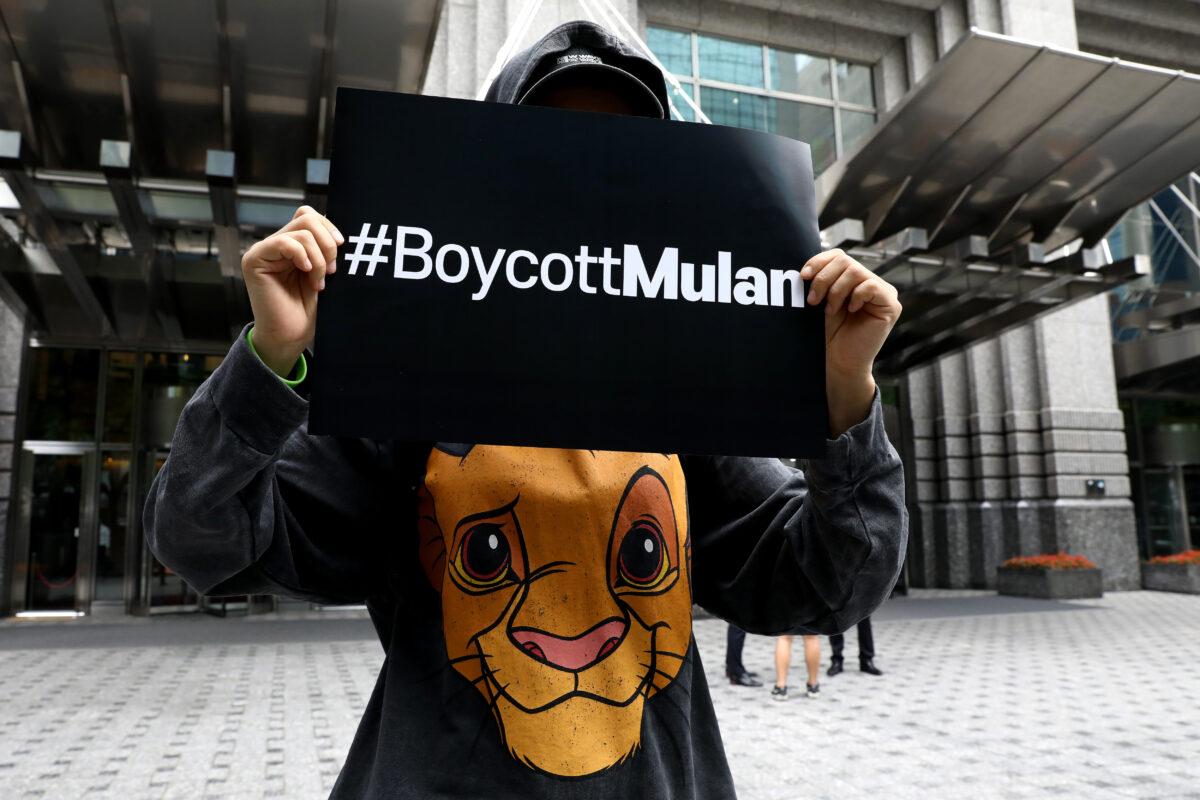American commentators are right to fret about the influence of the Chinese Communist Party (CCP) in our entertainment. And American entertainers, to their credit, have at least begun to take action by repelling some of the communist regime’s lobbying efforts.
But now is not a time for half-measures. It’s time for Hollywood to go on offense. Not only do we have a duty to stand up for our Western culture, but we must also promote the culture of the first people the CCP declared war on—the Chinese people.
Years ago, I picked up a group of Chinese students from an airport near Hollywood. After we dropped their things off at a hotel, I figured I’d help them settle in by showing them around. We stopped at a large bookstore, the kind where you can lounge at a cafe and browse for hours.
Soon one of the students—a young girl with a dignified and serious air about her—went missing. We split up to search for her, and some minutes later, I found her sitting cross-legged on the carpet in the Asia-Pacific section, surrounded by open books and cradling a large Chinese culture volume on her lap. She hardly reacted when I approached, then slowly raised her eyes to me, brimming with tears.
“You know more about my people than we do,” she said.
Her feeling of humiliation—of having been robbed of her own heritage—is a hallmark of the lifeless, gray world the CCP has always sought to create.
Today the CCP is rapidly approaching its own downfall. The unwieldy state, with no natural allies, even among its own people, will soon crumble—as all godless, rootless Towers of Babel do. It’s no surprise that in its final years, the regime is desperate to establish itself as a global menace, with tentacles grasping every industry in the West. And true to form, the regime is especially greedy for influence in the leading American cultural institution that is Hollywood.
By twisting and corrupting our music and movies, the CCP is trying to repeat in the West what it did to its people in the artificial “Cultural Revolution” that first clinched the Party’s iron grip on China.
That Cultural Revolution was the first great surge of what Xi Jinping’s policy of sinicization continues to impose on Chinese people today: the faceless, inhuman State grated down and erased everything it could of Chinese identity and culture, then imposed a brutal spate of repressive regulations to ensure the Chinese people could never again express their true selves.
After salting the Earth of communist China’s culture, the CCP now has its sights set on ours. You can see the dull, brutalist, anti-human trademarks of the communist ideology in more and more of America’s films. Recognize it in a sapping of color and character. Themes of conformity are presented as heroism. In one case, you can even spot a CCP death camp in the background of production shots.
That’s right—not only did the 2020 live-action film “Mulan” emphasize the theme of putting down enemies of China through military force, but Disney filmed it “on location” in Chinese-occupied East Turkestan. Behind-the-scenes photos show Disney filmed within sight of at least one of the many concentration camps known to contain millions of Uyghurs and other minorities and dissidents. The theatrical release of the film even included a thank you to the CCP in the credits.

A trailer for the hit movie sequel “Top Gun: Maverick” included a shot of Tom Cruise wearing the flight jacket from the original 1980s classic, which sports a Taiwanese flag patch. But the flag was digitally removed from the trailer, sparking fury from Hong Kong human rights advocates.
In the blockbuster 2016 Marvel movie “Dr. Strange,” screenwriter C. Robert Cargill admitted he erased a Tibetan character from the film, replacing him with a white woman so as not to “alienate” the “Chinese.”
On the contrary, Cargill clearly does not care for the Chinese any more than the CCP does. The Chinese diaspora—virtually none of them friends of the CCP—have consistently decried such acts of conformity to the brutal regime. When Cargill suggested it would be an off-putting “political” statement to “acknowledge that Tibet is a place,” he spoke not for the Chinese, but for the fraudulent government that seeks to suffocate their voice.
Cargill was crassly honest about his motives, at least. He made the call, he said, for money. China represents the second-largest moviegoing market in the world after the United States, you see, and Cargill knew that, as he put it, failing to scrub the Tibetan character would “risk the Chinese government going, ‘Hey, you know one of the biggest film-watching countries in the world? We’re not going to show your movie because you decided to get political.’”
Cargill’s cringing obedience, cynicism, and elevation of lifeless economic interests above the transcendence of people and their artistic expression is a perfect picture of what the CCP wants Hollywood’s future to look like.
But thanks be to God, that kind of filmmaking is already rapidly dying in American show business, with more and more filmmakers having the courage to stand up to the CCP and ignore its demands.
In the final theatrical release of “Top Gun: Maverick,” the Taiwanese flag was restored—eliciting applause from Taiwanese audiences. The release of “Mulan” was all but drowned out by a massive boycott movement on behalf of the CCP’s victims in which Hollywood artists joined forces with Chinese dissidents and Uyghur advocates. Even the release of “Dr. Strange” in 2016 was heavily overshadowed by the shame of Cargill’s and other executives’ thoughtless remarks about pandering to the CCP.
Again, Americans are right to defend our own culture-creating films from the CCP’s corrupting influence. But by partnering with Chinese screenwriters, producers, directors, actors, and other artists, Hollywood can even more aggressively reverse the dynamics of the ongoing tussle between the CCP and the West.
While still continuing to defy the CCP by telling our own culture’s stories in film and song, this Hollywood Offensive will put us in the position to deal a death blow by telling the very first stories that the soulless regime hoped the world would never hear again: the stories of China.

